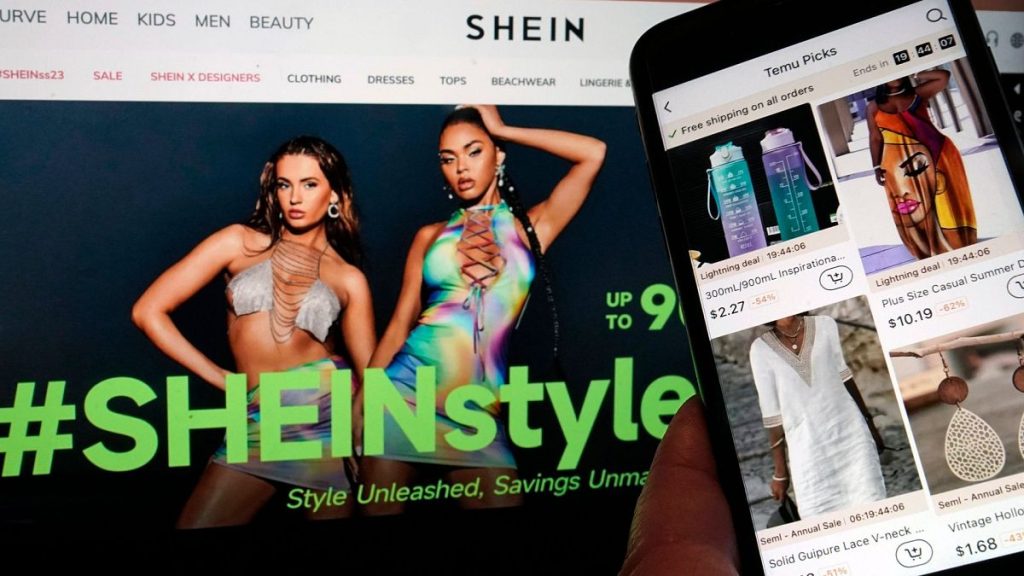France has fined fast-fashion giant Shein €40 million due to deceptive commercial practices, following a rigorous year-long investigation. The Directorate for Competition, Consumer Affairs and Fraud Prevention (DGCCRF) found that Shein misled consumers regarding price reductions and environmental claims. This penalty comes hot on the heels of Shein’s recent legal troubles with the European Commission, raising further questions about the company’s business model and practices.
| Article Subheadings |
|---|
| 1) Details of the Fine Imposed |
| 2) Investigation Findings |
| 3) Environmental Claims Scrutinized |
| 4) Public and Political Reactions |
| 5) Broader Implications for Fast Fashion |
Details of the Fine Imposed
On Thursday, the French government affirmed its commitment to enforcing consumer protection laws by imposing a substantial €40 million fine on Shein, the fast-fashion retailer based in China. The fine was a direct response to the company’s engagement in deceptive commercial practices that misled consumers about pricing and product quality. This decision came from a year-long investigation conducted by the Directorate for Competition, Consumer Affairs and Fraud Prevention (DGCCRF), which scrutinized the company’s operations in France. Notably, Shein accepted the fine, indicating a willingness to comply, albeit under duress from regulatory bodies.
Investigation Findings
The DGCCRF’s investigation unearthed significant discrepancies in Shein’s promotional practices. Analysts reviewed products listed as discounted on Shein’s French site from October 2022 to August 2023. They found that 57% of these items did not have any actual price reduction. Contrarily, 19% showed only minor discounts, while an alarming 11% of the products experienced price increases disguised as sales. These findings raised serious concerns regarding the integrity of Shein’s price representations and the methods employed to attract consumers, leading to a perception that consumers were receiving excellent deals.
Environmental Claims Scrutinized
Compounding its troubles, Shein faced criticism for its environmental claims. The DGCCRF highlighted that the retailer could not substantiate its assertions regarding environmental responsibility. The company had portrayed itself as a sustainable entity committed to reducing its environmental impact by targeting a 25% reduction in greenhouse gas emissions. However, these claims contradicted its core business model revolving around the mass production of low-cost textiles. This contradiction prompted regulatory scrutiny and fueled further skepticism from environmental advocates who have long criticized fast fashion for its detrimental ecological footprint.
Public and Political Reactions
The fine and the accompanying investigation findings have ignited a wave of outrage among politicians and the public alike. In January, British lawmakers expressed their discontent when Shein refused to confirm that its cotton products were free from links to forced labor in Xinjiang, China. Similarly, advocacy groups have been vocal about the treatment of workers in Shein’s factories, shedding light on reports that employees still endure grueling schedules, sometimes exceeding 75 hours a week. These revelations have intensified calls for accountability within the fast-fashion industry and raised critical questions about consumer rights and corporate ethics.
Broader Implications for Fast Fashion
The staggering fine imposed on Shein may serve as a warning shot to other players in the fast-fashion industry. As scrutiny surrounding labor practices, environmental responsibility, and marketing honesty intensifies, brands may need to reassess their business models. A significant portion of fast fashion’s appeal lies in its affordability, yet the environmental and ethical costs of such a model are becoming increasingly unsustainable. Thus, this decision may herald a shift in consumer expectations and regulatory frameworks, underpinning a drive towards more responsible consumption.
| No. | Key Points |
|---|---|
| 1 | France imposed a €40 million fine on fast-fashion giant Shein for deceptive practices. |
| 2 | The DGCCRF found that the majority of Shein’s supposedly discounted products did not have genuine discounts. |
| 3 | Shein made unsubstantiated environmental claims regarding its sustainability efforts. |
| 4 | Public response has been critical, particularly regarding Shein’s labor practices and environmental impact. |
| 5 | The case may set a precedent for stricter regulations and accountability in the fast-fashion industry. |
Summary
The €40 million fine imposed on Shein by French authorities underscores the growing intolerance for deceptive marketing practices in the fast-fashion industry. Regulatory bodies worldwide are heightening scrutiny on corporations that mislead consumers, particularly in the areas of pricing and environmental responsibility. As public awareness and concern regarding corporate ethics increase, companies may find themselves under pressure to align their business practices more closely with sustainable and ethical standards. The findings from this investigation not only highlight Shein’s need for reform but also serve as a clarion call for the entire industry to rethink its operational paradigm.
Frequently Asked Questions
Question: What specific deceptive practices was Shein found guilty of?
Shein was found guilty of misleading customers about price reductions, with a significant portion of its claimed sales not reflecting actual discounts.
Question: How did Shein respond to the fine?
Shein accepted the €40 million fine imposed by French authorities, acknowledging the findings of the DGCCRF.
Question: What are the implications of this fine for the fast-fashion industry?
The fine potentially sets a precedent for increased regulation and accountability in the fast-fashion industry, encouraging brands to adopt more ethical and transparent practices.


